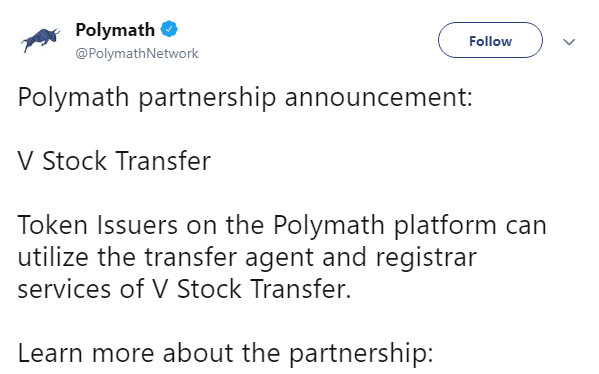- Terminology
- Automated Market Maker
- Blockchain Explained
- Blockchain: Private vs Public
- Blockchain Oracle
- CBDCs
- Cryptocurrencies
- Cryptocurrency Trading
- Dapps
- DeFi
- Digital Assets
- Digital Banking
- Digital Currency
- Digital Securities
- Digital Wallet
- Directed Acyclic Graph
- DLT
- Equity Crowdfunding
- Equity Tokens
- FinTech
- Hard Fork
- Masternodes
- Metaverse
- NFTs (Non Fungible Tokens)
- Parachains
- Proof of Work vs Proof of Stake
- Security Tokens
- Staking
- STOs
- Stablecoins Explained
- Stablecoins – How They Work
- Smart Contracts
- Token Burning
- Tokenized Securities
- Utility Tokens
- Web 3.0
Digital Assets 101
How do Security Token Transactions Work?
Table Of Contents

Security token transactions require you to meet certain regulatory standards prior to engaging in your transaction. The regulations are what makes security tokens different than traditional tokens. Understanding the lifecycle of these tokens will help you to better grasp the concept, including the current requirements, of a security token transaction.
Security Token Transactions – Issuance
Issuance is the first security coin transaction to take place. Security tokens are issued in a couple of different ways. In most instances, Investors acquire these tokens during a Security Token Offering (STO). The complex nature of the process led to alternatives forming in the crypto space. Recently, multiple security token launch firms steeped into the crypto space. These platforms integrate the SEC's security requirements right into your token development. Platforms such as Polymath utilize their own protocol. This ensures compliance requirements remain intact throughout the entire process.

Polymath via Homepage
KYC / AML
Security tokens meet both, Know Your Customer (KYC) and Anti-Money Laundering (AML) requirements. This legislation requires companies and investors to provide all relevant information regarding the transaction. These standards are common practice in the banking world. During an STO, Companies provide investors with information such as their company's name, corporate address, the identities of the executives, and financial records.
This information gives investors more security. Unlike an ICO, an STO requires validation of every investor's identity. This regulation also means that security tokens can't be transferred to random or anonymous individuals. These requirements led to the development of security coin only exchanges.
Exchanges / Custodial Wallets
Exchange transfers are another form of security token transaction. Security coin exchanges differ from their counterparts in the fact that all participants follow the above-mentioned SEC guidelines. There are no anonymous accounts or privacy coins permitted on security exchanges. As a result, one of the main concerns regarding security tokens is how they are handled when on exchanges.
Since exchanges hold their users crypto, it creates a unique challenge for regulators and developers alike. Security exchanges use special formatted custodial wallets that adhere to the regulations regarding holding securities for clients in their attempt to integrate into the current legislation.
Security Token Transactions Agents
The complex nature of the securities legislation created the perfect opportunity for transfer agents. These professionals help investors transfer their security tokens properly. Recently, the transferring firm V Stock partnered with Polymath. The partnership provides Polymath users with more liquidity and security. The firm specializes in security token transfer compliance.

Polymath V Stock Partnership via Twitter
Security Token ProtocolsThere are many different emerging security token platforms. Of these platforms, Ethereum and Polymath are the most popular. Ethereum utilizes the ERC-725 and ERC-735 protocols. Polymath utilizes the T-20 protocol. These platforms integrate the necessary security token requirements directly into the protocol via smart contracts.
These smart contracts require compliance before full-filling any token transfer. By internalizing the security token requirements, these platforms protect both the consumer and their own interests. These protocols incorporate the benefits of blockchain technology flawlessly, through the use of smart contracts.
Security Token Transactions – A Work in Progress
There is still much to be decided in the coming months as the SEC mulls further integration of the cryptomarket. On the flip side, developers continue to host meetups to increase development in the security token sector. You should expect to see both parties stepping up their efforts in the coming months considering the growing popularity of security tokens.
David Hamilton is a full-time journalist and a long-time bitcoinist. He specializes in writing articles on the blockchain. His articles have been published in multiple bitcoin publications including Bitcoinlightning.com
You may like


Binance Breathes New Life into Polymesh as POLYX Staking Set to Go Live – Massive Gains Ensue


Digital Securities Update – DigiShares Receives EDF Grant, Knight Dragon Investments Announces STO, tZERO Revamps Board of Directors


Market Update – Securitize to Tokenize $500M VC Fund, Polymath Gauges Industry Sentiment, and More


Investing In Polymath (POLY) – Everything You Need to Know


TreeBR DSO Goes Live as Polymath, STO Market, and Montis Digital Each Hire New Talent – Digital Securities Weekly


Polymesh Launch Imminent while MERJ Eyes a Global Market- Digital Securities Weekly